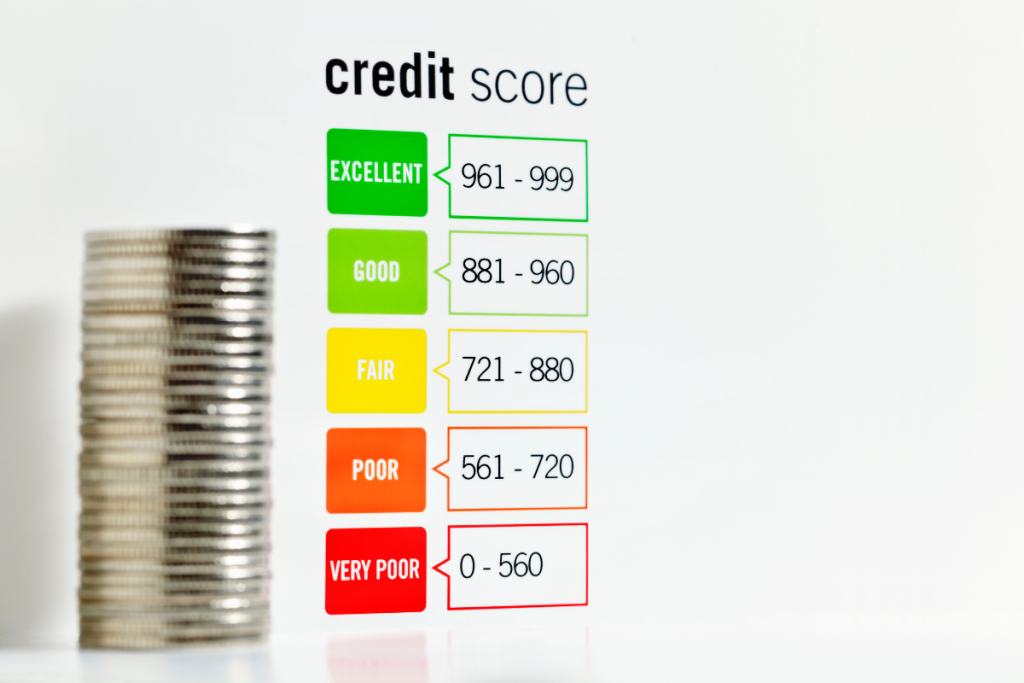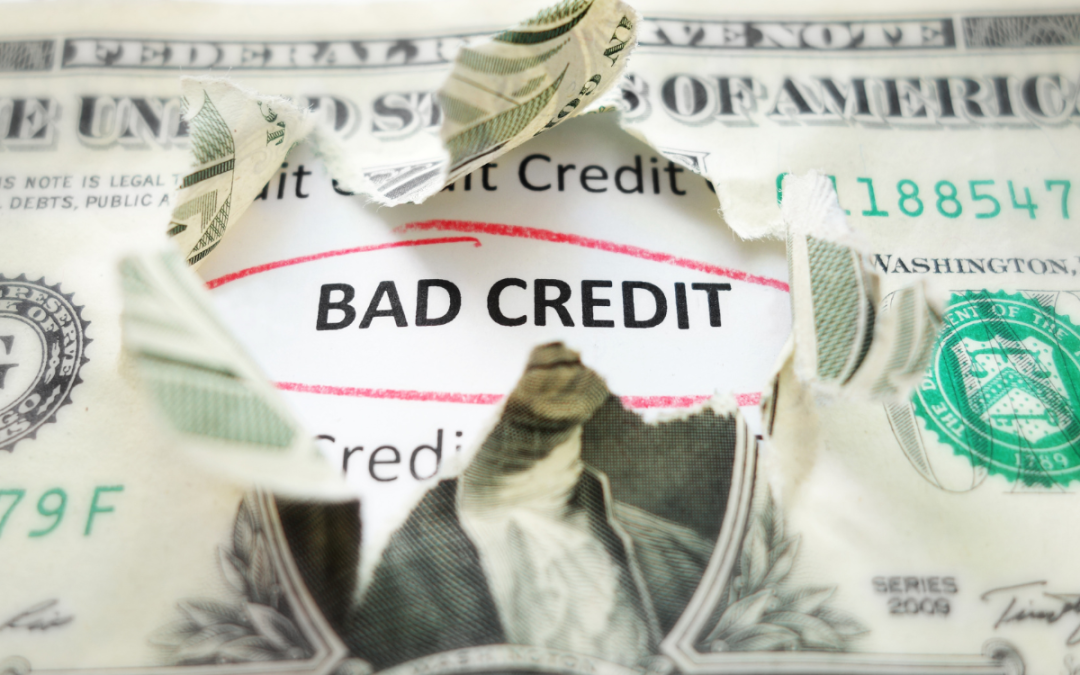Embarking on a new business venture can be equally exhilarating as it is intimidating, especially when it comes to dealing with finances.
As you explore entrepreneurship, the term ‘startup credit’ becomes crucial. For the unfamiliar, this refers to a business’s credit history, which lenders examine to determine the risk involved in lending money. Generally, having good startup credit greatly boosts your chances of procuring a business loan.
But what if your startup has bad credit? Is it the end of the road?
The answer is a definitive no. If you know where to look and what to do, securing a business loan with startup bad credit is possible. This blog will provide you with key insights on this.
Why Startups Struggle To Secure Startup Business Loans With Bad Credit
When it comes to startups seeking business loans, bad credit is a flashing red light. But why all the fuss? To understand the struggle, let’s peek into the lender’s world. Loans are risky, and lenders prefer minimizing risks. Startups are generally unproven, and business owners with bad credit scores heighten the alarm.
Startups often facetime-in-business barriers; with the limited history that lenders rely on for predicting success, poor credit scores only amplify uncertainties. Lenders focus on credit scores like hawks, gauging borrowers’ trustworthiness. The golden rule: higher credit scores equal lower risks, and vice versa.
If you’ve got a bad credit score hovering around the minimum credit score requirement, lenders might offer limited loan options, hesitating to sign off on larger loan amounts or longer terms. Suddenly, you find yourself neck-deep in loan rejection letters.

Small business owners may explore alternatives like business lines of credit, short-term loans, or even business credit cards, all with varying degrees of success. At times, startups can leverage SBA loans or small business grants, but these avenues aren’t always viable.
To break free from this deadlock, invest in improving credit scores through focused strategies, such as building business credit, paying bills punctually, and monitoring credit reports for errors. In due time, the traditional loan gates will open, and your startup will thrive on newfound resources.
Types Of Business Loans Available For Startups With Bad Credit Score
No matter the credit hiccups, the financial world still has faith in your startup vision. Here are some viable loan options for startups with bad credit:
- Merchant Cash Advances: These advances, though costly, provide immediate funding for your business. Lenders look past your credit score of 500 or even 600, focusing on your business’s daily credit and debit card sales.
- Business Lines of Credit: Borrowers with bad credit find this option appealing due to its flexibility. You draw from the line as needed, repay the loan, and then borrow again.
- Equipment Financing: Your credit score of 600 (or less), won’t rule you out. Lenders place more weight on the equipment’s value as it acts as collateral.
- Microloans: Provided by the Small Business Development Center, non-profits, and other lenders, such loans, and lines of credit cater specifically to small businesses, even those with bad credit.
- Invoice Financing: This option offers loans for startups with bad credit based on unpaid invoices. Quick cash flows in, sometimes as soon as the next business day.
Getting a business loan with bad credit isn’t a mirage. It requires a keen eye for the right loan type and some committed work in improving your credit. Check your personal credit regularly, rectify errors and keep repaying those loans on time.
It won’t be long before you qualify for a startup business loan. With determination, you’re sure to bolster your business finances. Stay motivated, better credit is around the corner!
Navigating The Business Loan Application Process With Bad Credit
Applying for a business loan with bad credit doesn’t have to be a nightmare. Navigate the process by following these simple steps:
- Identify the right loan option: Research loan types—term loans, equipment loans, working capital loans, or even short-term loans—and select the best fit for your startup.
- Prepare a solid business plan: Lenders value well-crafted business plans, especially when your credit score isn’t impressive. Showcase your startup’s potential, growth strategy, and financial projections.
- Build your business credit: Get a business bank account, open lines of credit (business credit cards), and pay bills on time. Establish yourself as a responsible borrower.
- Improve your personal credit score: Maintain a healthy credit history by making timely payments, reducing credit utilization, and monitoring your credit report for errors.
- Explore alternative options: Assess non-traditional loan sources like SBA loans, small business grants, and credit unions, which may have more flexible credit requirements.
- Prepare relevant documentation: Collate required application documents, such as your business plan, financial statements, credit reports, and identification.
- Submit your loan application: Ensure accuracy and completeness when applying. Mistakes or omissions may delay your application further.
Keep realistic expectations. With bad credit, it may take longer to secure a loan, or you could face higher interest rates. Remember, getting a startup business loan with poor credit isn’t impossible.
Stay resilient and aim to improve your credit standing to grow your business and increase future funding opportunities.

Strategies To Build Business Credit Score For Future Business Loans
Securing a business loan with bad credit can be tough. But don’t lose hope! Here’s how you can polish your credit scores for a brighter financial future.
- Pay on Time: It’s simple but crucial. Pay bills, loan EOIs, credit card charges on time – every time. This builds a healthy credit history and boosts your credit score.
- Keep Low Credit Balances: Keep your credit card balances low. High balances scare lenders away, negatively impacting your credit score.
- Monitor Your Credit Report: Regularly check your personal and business credit reports for errors. Dispute them ASAP to keep your score intact.
- Limit Credit Applications: Too many credit checks harm your credit scores. Apply for new credits sparingly, and only when necessary.
- Build Business Credit: Establish your business credit profile by getting a business-related credit card or a business line of credit. Use and repay responsibly.
- Repair Credit: Hire credit repair services if your personal credit score is extremely low. They can negotiate with creditors, arrange credit counseling or debt consolidation.
Remember, bolstering your credit score won’t happen overnight. It requires patience and diligent financial management. Improving your score can unlock better business loan opportunities, helping pave the way for your startup’s success.
Secure Your Startup’s Future With The Best Startup Business Loans
Securing a business loan with bad credit might seem challenging, but it’s far from impossible. Identifying the right loan option, preparing a strong business plan, building your business credit, and improving your personal credit score, can help you lay the foundation for financial success.
Irrespective of your credit score, it’s vital to have a cogent business plan. This demonstrates to lenders you have a clear idea about how you’re going to use the loan, your plan for growth, and how you intend to pay back the loan.
By exploring alternative loan sources like SBA loans, business grants, and credit unions, you’ll open new doors for your startup, even with poor credit. Keep in mind that this journey demands dedication and constant credit monitoring, but rest assured that your efforts will pay off.
While bad startup credit can feel like a huge roadblock, it doesn’t have to spell the end for your grand business ambitions. There are many options available to fund your startup even with bad credit.
Remember, as much as lenders want to minimize risk, they also want to support the growth and success of small businesses. Take the time to explore the options, improve your credit status wherever possible, and stay focused on your goal.

